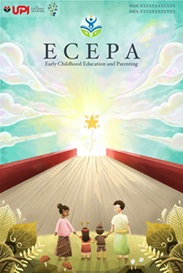ISSN 3046-451X (Online - Elektronik)
Early Childhood Education & Parenting (ECEPA) promotes research in the field of early childhood education, parenting, and ethno parenting with particular respect to Indonesia, but not limited to authorship or topical coverage within the region. Contributions are expected from lecturers, researchers, teachers, and students at advanced stages of their research. To be published in ECEPA, a rigorous review process will be done.
| The editorial contents and elements that comprise the journal include:
|
The editorial board welcomes innovative manuscripts from early childhood education, parenting and field. The scope of journal are
|
Vol 2, No 1 (2025)
Table of Contents
Articles
|
Idamawati Makkatang, Yeni Rachmawati, Euis Kurniati
|
1-10
|
|
Isah Cahyani, Siti Amila Rafiani Silmi, Siti Arina Hasanah
|
11-18
|
|
Ninawati Syahrul
|
19-32
|
|
Aliva Fatiha Aqeela, Gina Nurhaliza Firdaus, Maria Natalia Kewa Wanga, Mauizhaturrahmi Mauizhaturrahmi, Nadhifa Dhira Khairunnisa
|
33-39
|
|
Dudi Komaludin, Agus Mahendra, Nurlan Kusmaedi, Amung Ma'mun
|
40-48
|










